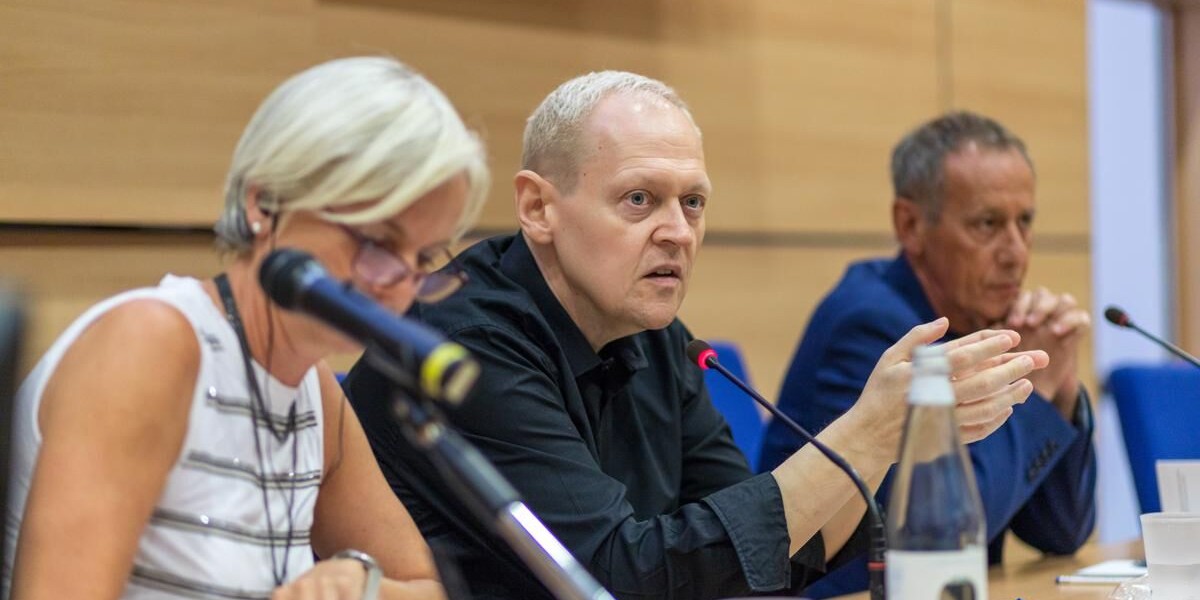
Harald Gilbers in conversation with Luigi Caracciolo
The queue is long in front of the Aula Magna of the Fondazione Università di Mantova when the German author Harald Gilbers visits Festivaletteratura on Friday noon, in his event with Luigi Caracciolo. A special kind of crime writer who combines history and criminal cases in a unique way.
His historical crime thrillers set during 1944 and 1949, the blind spot of German post-war history. Understanding everyday life in times of crisis is an interest that already grew during his studies of history, literature and American cultural history. He takes an interdisciplinary approach and attempts to explain historical events in a cultural context. An idea that, in his opinion, is far too little pursued in German history lessons and something he would like to translate into his novels.
With detective novels, he has found a genre in which he can address other topics he is interested in. Despite the relatively fixed format that a crime story comes with - it always needs a crime case as a starting point - a well-placed plot offers him enough space to develop other ideas. His many years of experience as a director help him to create the twists and turns of his stories. For Gilbers, writing books represents an opportunity to create million-dollar blockbusters with just a pen, a sheet of paper and a printer.
In his books, the past becomes present since his figures never leave their historical context and this means his characters are influenced by their surroundings and historical events of that time. This leads to the fact that his main character, the Jewish inspector Oppenheimer, only solves his cases by taking socio-cultural influences into account.
For Gilbers, novels are vital in order to counteract right-wing tendencies. A current development he could not have imagined eleven years ago when he started writing the series. “When we complain about our society, we complain at a high level. This tempts us to forget the mistakes we have already made. I would like to use my books as a wake-up call to show that we must not come to hasty conclusions.”



